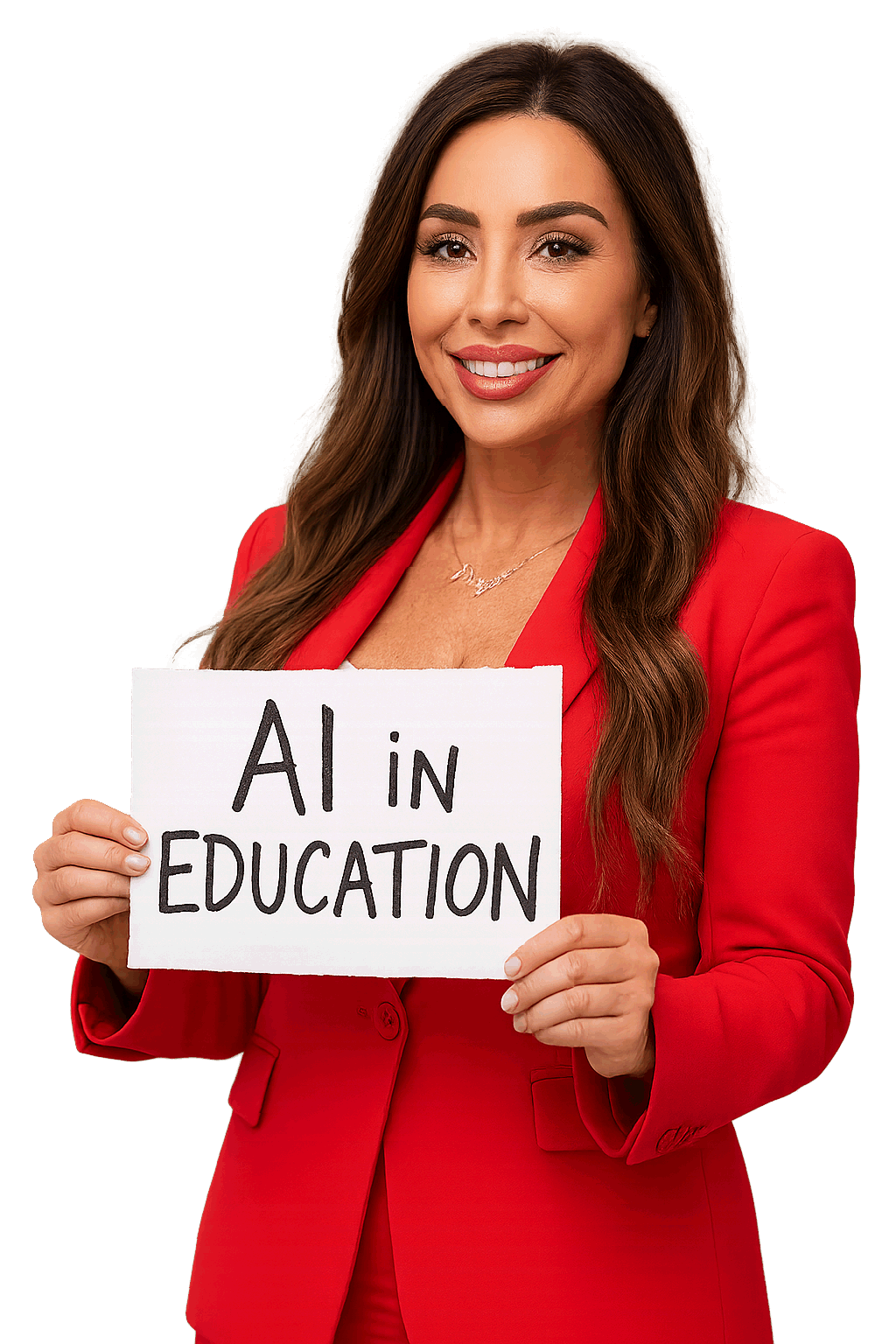The future of learning is flexible, personalized, and deeply engaging. Yet many educators and trainers are stuck with rigid content, outdated tools, and limited time to adapt. At Wemaxa, we believe AI should lighten the load not complicate it. That’s why we build intelligent solutions that help teachers teach better, trainers train smarter and learners achieve more. Whether you lead a classroom, develop a corporate training strategy, or run an edtech platform, we bring scalable tools that improve performance and ignite curiosity.
Ai That Adapts to Every Student
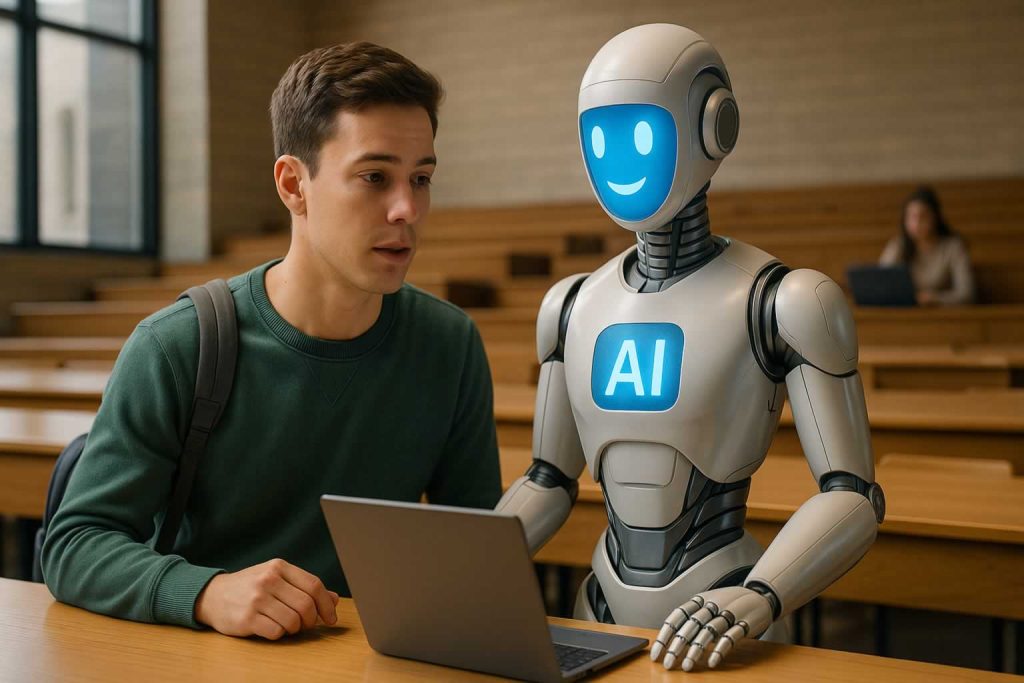
Every learner is different. Wemaxa’s AI-powered tutors provide round-the-clock support, walking students through concepts in math, science, language, and more. Feedback adjusts based on how each person learns best whether they prefer visual examples, conversational Q&A, or voice-based explanation. AI identifies knowledge gaps and suggests activities to close them, helping students progress with confidence and clarity.
AI Course Creation
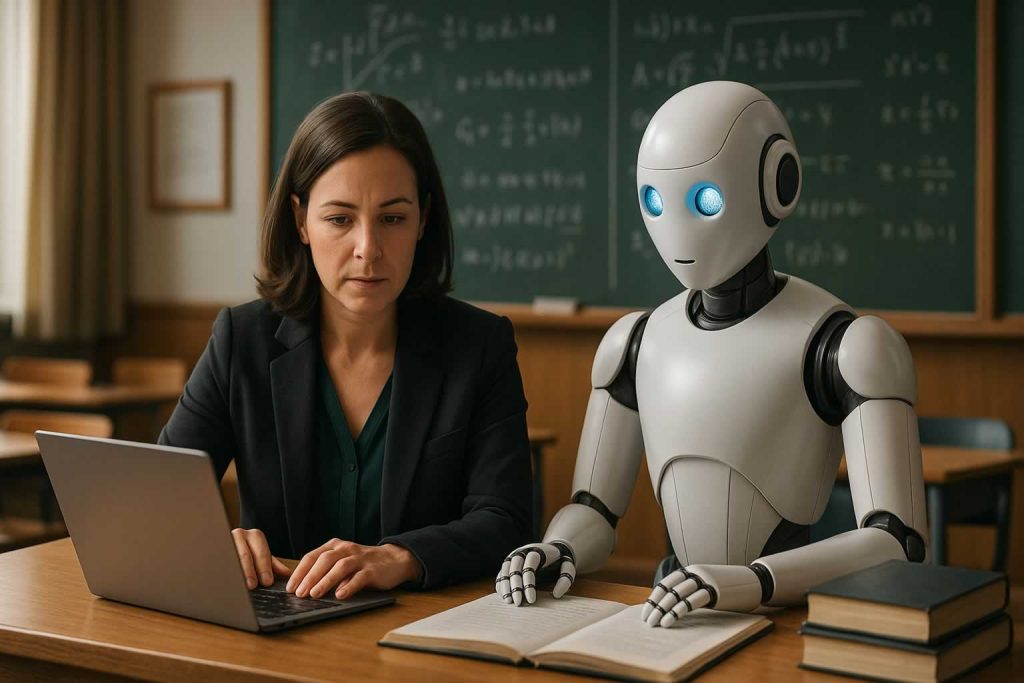
Preparing lessons doesn’t have to be a full-time job. With Wemaxa, instructors can input a topic and instantly receive a full module—slides, interactive quizzes, and discussion prompts included. Our system adjusts difficulty based on past performance. A struggling algebra class might get simplified instruction while an advanced group explores real-world applications. Need to teach globally? Lessons are available in multiple languages on demand.
Smarter AI Curriculum
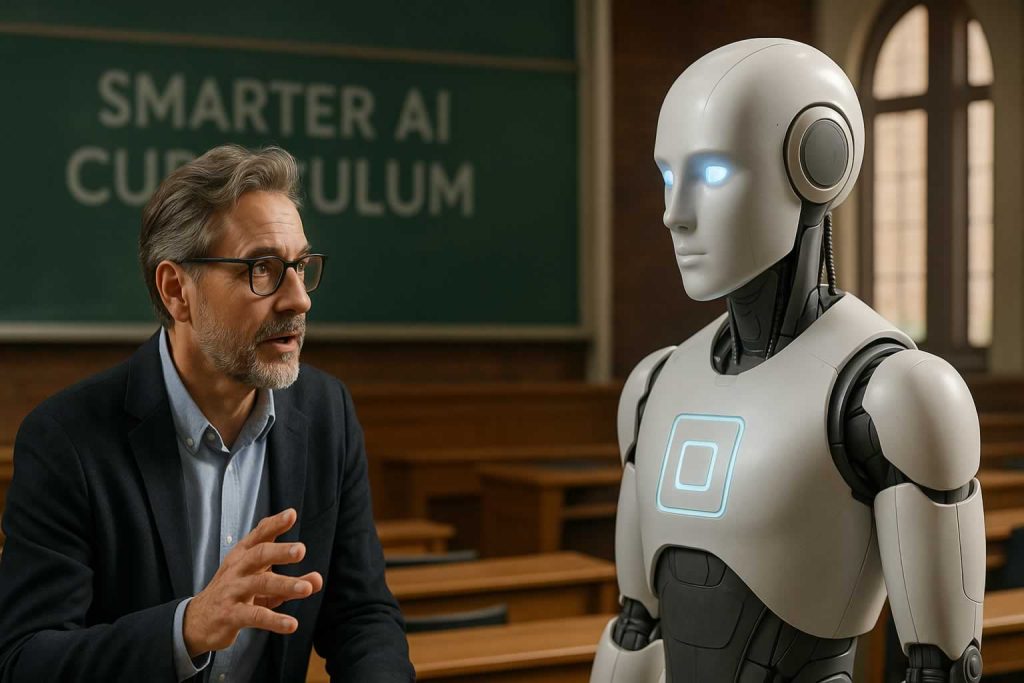
Wemaxa ensures your content stays on point. Whether you’re meeting Common Core, IB, or internal training standards, our system aligns everything automatically. Instructors also get suggestions for weaving disciplines together. For example, a module on industrial history might include economic theory or literature from that era. Corporate teams benefit from real-case scenario injection training that feels realistic, not theoretical.
AI That Teaches

Wemaxa takes grading beyond just scores. Essays are analyzed for grammar, structure, and depth of argument with meaningful feedback learners can grow from. AI also detects plagiarism or AI-generated writing while educating students on responsible citation and original thinking. Language learners and presenters benefit too receiving pronunciation support and delivery feedback through voice or video analysis.
Why Educators and Trainers Trust Wemaxa
- Built for Teachers: Reduce prep time and grading
- Scaling: From K-12 classrooms to enterprise learning platforms
- Secure and FERPA-compliant Protecting every student’s data
Let’s Rethink Learning Together
Explore our tools and see how AI can support your learning ecosystem at Wemaxa.com. We don’t replace educators. We empower them with tools that scale their impact and free their time to do what they love.
Ultimately, the debate over AI in education is not just technical but philosophical. The question is whether schools, colleges, and training programs serve society best by producing optimized test scores or by cultivating critical, independent thinkers prepared to navigate uncertainty. At Wemaxa, our philosophy is clear: AI does not replace educators. Instead, it amplifies their impact, reducing administrative burdens and expanding creative possibilities. Institutions that treat AI as an ally to human judgment stand to unlock genuine transformation.
MORE LINKS:
AI IMPLEMENTATION IN SCHOOLS, COLLEGES AND UNIVERSITIES
Artificial intelligence has already entered classrooms quietly, often through adaptive learning platforms and plagiarism detection tools, but the larger question remains how to implement it systematically in schools, colleges and universities. The temptation is to throw technology at every inefficiency, yet education is not a factory line and cannot be restructured overnight. Proper implementation requires a balance between innovation and pedagogy, otherwise institutions risk replacing one set of problems with another. At the school level, AI is typically deployed for personalized learning, tailoring lessons to individual pace and comprehension. This can support teachers by identifying struggling students earlier than traditional testing would. However, if administrators imagine AI as a substitute for human teaching rather than a complement, the result is a hollowed-out curriculum where data replaces mentorship. Children do not only learn arithmetic and grammar, they learn discipline, cooperation and critical thinking, none of which can be outsourced to algorithms without damage.

Colleges approach AI with a more utilitarian mindset, often embedding it into career preparation. Automated grading, essay analysis, and research assistance are attractive features for institutions juggling thousands of students. The efficiency gains are real, but they come with trade-offs in academic rigor. If essays are judged primarily by machine standards, students adapt to those criteria and originality suffers. Universities that once prided themselves on independent thought risk reducing education to a game of prompt optimization. Universities also view AI as a research partner, whether in data-heavy fields like genomics or in predictive modeling for economics. Here, the integration is more natural because academic research has always relied on tools that extend human capacity. The danger is not the adoption itself but the governance around it. Who controls the algorithms, how results are validated, and what ethical oversight is in place are all unanswered questions. Without clarity, institutions may find themselves outsourcing the very integrity of their research.

Financial incentives complicate the debate. EdTech companies aggressively promote AI products, presenting them as revolutionary rather than experimental. School boards and university senates, often under pressure to appear modern, adopt these tools with little scrutiny. The mismatch between vendor promises and classroom reality leads to disillusionment, wasted budgets and student frustration. True implementation must involve slow testing, transparent evaluation, and above all input from teachers and students themselves. The vision of AI in education is neither utopia nor dystopia. It is a contested space where efficiency, creativity, equity and control collide. Institutions that treat AI as a supplement to human judgment may find genuine benefits in tailored learning and research augmentation. Those that surrender too quickly risk degrading the very qualities that make education worth defending. In the end, the challenge is not simply technological, it is philosophical, asking whether schools and universities serve society best by producing optimized test scores or by cultivating independent, critical minds.
Engagement That Feels Like Play
Our adaptive quizzes challenge learners at the right pace neither too easy nor too hard. Virtual assistants offer reminders, flashcards, and encouragement throughout the day. For subjects that benefit from immersion, Wemaxa generates AR or VR experiences whether that’s dissecting a cell, touring a historical site, or simulating a business negotiation.
Upskilling & Training That Moves Fast
In fast-paced workplaces, learning needs to keep up. Wemaxa analyzes employee skill profiles and suggests growth paths automatically. We deliver microlearning bursts short training clips or summaries for professionals on the move. Compliance deadlines? Certification renewals? We track them all with automated alerts that help teams stay audit-ready.
Artificial intelligence has entered classrooms quietly but steadily, often in ways students do not even notice at first. Adaptive learning systems personalize lessons, plagiarism detection tools monitor submissions, and automated grading platforms promise relief for overburdened teachers. Yet the broader question is not whether AI exists in schools, but how it should be systematically integrated into education without undermining its human core. Education is not a production line, and attempts to impose purely technological solutions often end up replacing one set of inefficiencies with another. For AI to succeed, implementation must be carefully balanced with pedagogy. A school cannot simply outsource curiosity or discipline to software without serious consequences. Children learn cooperation, empathy, and resilience alongside mathematics and language, and none of those qualities can be cultivated through algorithms alone. Organizations such as UNESCO highlight that technology must always remain subordinate to teaching values, not replace them.
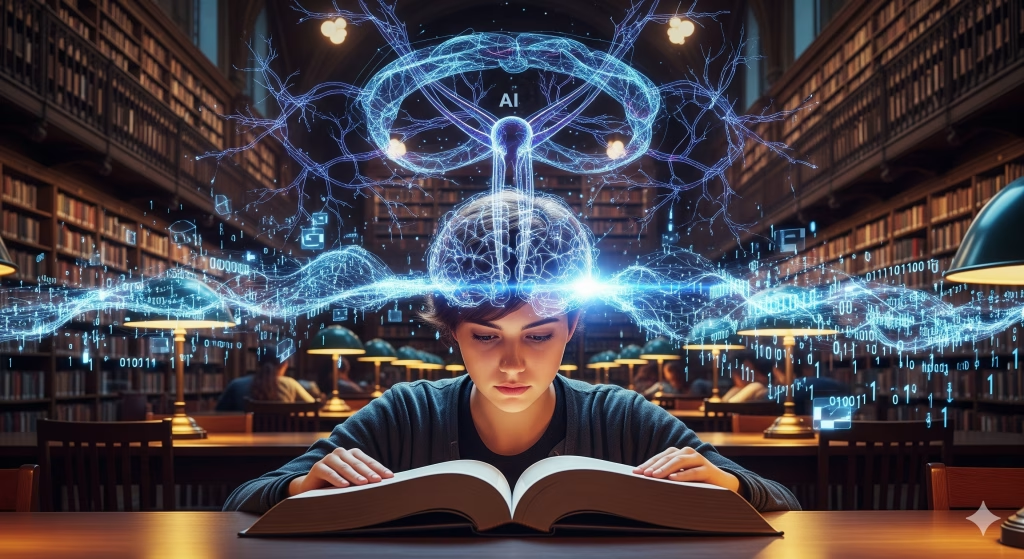
At the K-12 level, personalized learning has become the most prominent feature of AI adoption. Adaptive platforms monitor student performance and tailor instruction accordingly, offering easier exercises for those who struggle and enrichment for advanced learners. This helps teachers spot problems earlier than standardized testing would. Yet overreliance on AI risks hollowing out the curriculum, reducing education to data-driven drill sessions. When administrators imagine AI as a substitute for teachers rather than as a tool, mentorship, creativity, and social learning erode. Reports from Edutopia stress that teacher–student interaction is irreplaceable, and digital personalization should remain a supplement, not a stand-in. At Wemaxa, we approach this challenge with AI tutors that adapt to each student’s preferred learning style visual, conversational, or voice-based while still reinforcing the importance of human oversight and engagement.
Wemaxa’s AI-powered course creation extends beyond static lessons. Instructors can input a topic and instantly receive full modules that include slide decks, interactive quizzes, and discussion prompts. Our system dynamically adjusts complexity: a struggling algebra class might get simplified examples, while an advanced seminar dives into real-world applications. Courses can also be translated into multiple languages, supporting global classrooms and institutions. This mirrors trends seen in international education, where platforms such as Coursera and edX already deliver multilingual, AI-enhanced content to millions of learners. But unlike one-size-fits-all platforms, Wemaxa emphasizes modularity and instructor control, ensuring AI augments curriculum design rather than dictating it.
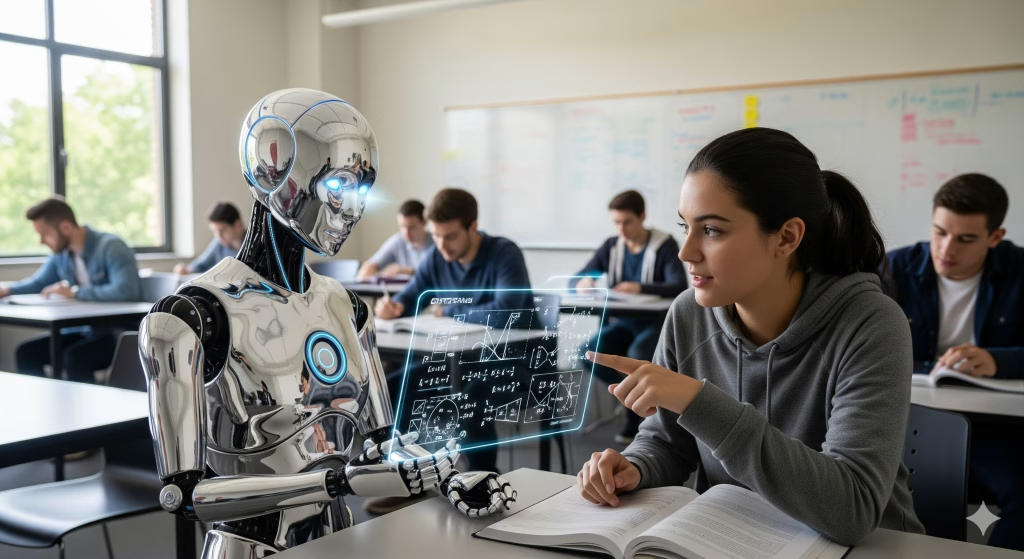
Colleges and universities approach AI from a more utilitarian perspective, often embedding it into processes that maximize efficiency. Automated grading of essays, AI-driven research assistants, and predictive analytics for enrollment management have become common features. For institutions dealing with thousands of students, these tools promise consistency and scale. Yet efficiency is not the same as rigor. If students learn to game AI essay graders by mimicking stylistic patterns rather than engaging with ideas, originality suffers. The danger is reducing education to prompt optimization rather than cultivating independent thought. A Chronicle of Higher Education analysis has already noted how poorly governed deployments risk eroding trust in academic standards. Universities also rely on AI in research, especially in fields such as genomics, economics, and climate science where massive datasets demand machine support. But reliance without oversight raises critical questions: Who controls the algorithms? Who validates the results? Without clear governance, institutions risk outsourcing not just analysis but also the very integrity of their findings.
Curriculum development benefits greatly from AI, but it demands caution. Wemaxa’s smarter AI curriculum engine aligns content with standards like Common Core or International Baccalaureate automatically, while offering suggestions for interdisciplinary connections. For example, a unit on industrial history might integrate economic theory, political movements, and relevant literature to create a richer learning environment. Corporate training programs also benefit when AI injects real-world case studies into compliance or leadership modules, ensuring instruction is not abstract but practical. Similar initiatives are being researched at OECD, which studies how AI can shape skill development in both academic and workplace settings. Yet no matter how powerful the curriculum tools become, human educators remain the final arbiters of relevance, ethics, and adaptability.
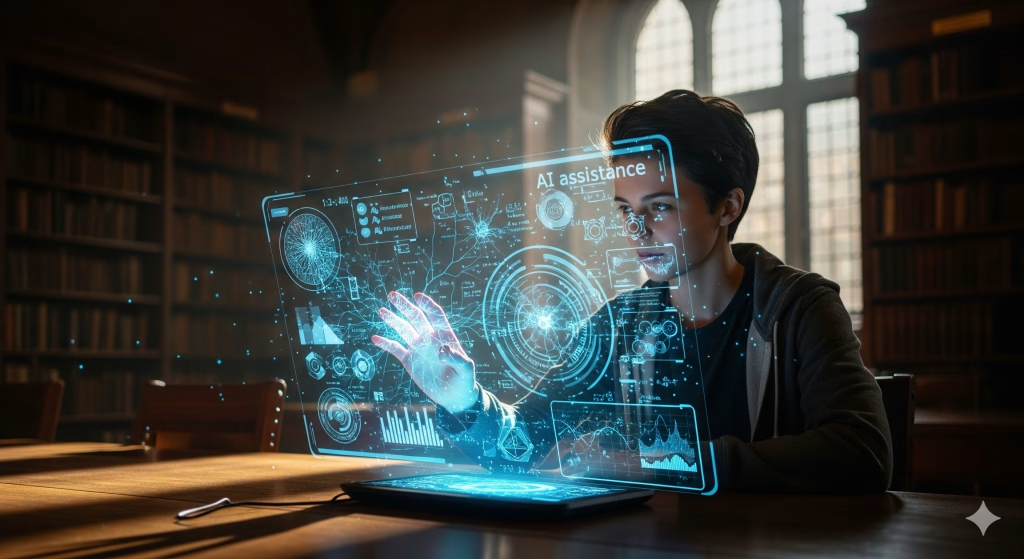
Assessment is another domain being transformed. Wemaxa’s grading tools go beyond assigning scores by offering meaningful feedback on structure, argumentation, and clarity. Essays can be analyzed not just for grammar but for depth of reasoning, with AI highlighting strengths and areas for improvement. The same systems also detect plagiarism or AI-generated writing, reinforcing academic integrity. This is increasingly important as students experiment with generative tools that blur the lines between originality and automation. Scholars at JSTOR have observed that plagiarism detection must evolve into teaching moments, guiding students toward responsible citation and authentic thought. Wemaxa integrates this philosophy, turning detection into an opportunity for growth rather than punishment.
EdTech markets complicate these discussions. Companies aggressively promote AI as revolutionary, pressuring school boards and university senates to adopt tools quickly in the name of modernization. This mismatch between glossy vendor promises and messy classroom realities leads to wasted budgets, frustrated faculty, and disappointed students. True implementation requires patient pilot testing, transparent evaluation, and feedback from teachers and students themselves. The Brookings Institution warns that premature adoption risks deepening inequities, particularly in underfunded schools where technology often replaces rather than supports human teaching. Institutions that frame AI as a supplement to human judgment may achieve genuine benefits in research and learning. Those that embrace it as a total replacement risk damaging the very qualities creativity, independence, ethical reasoning that define education at its best.
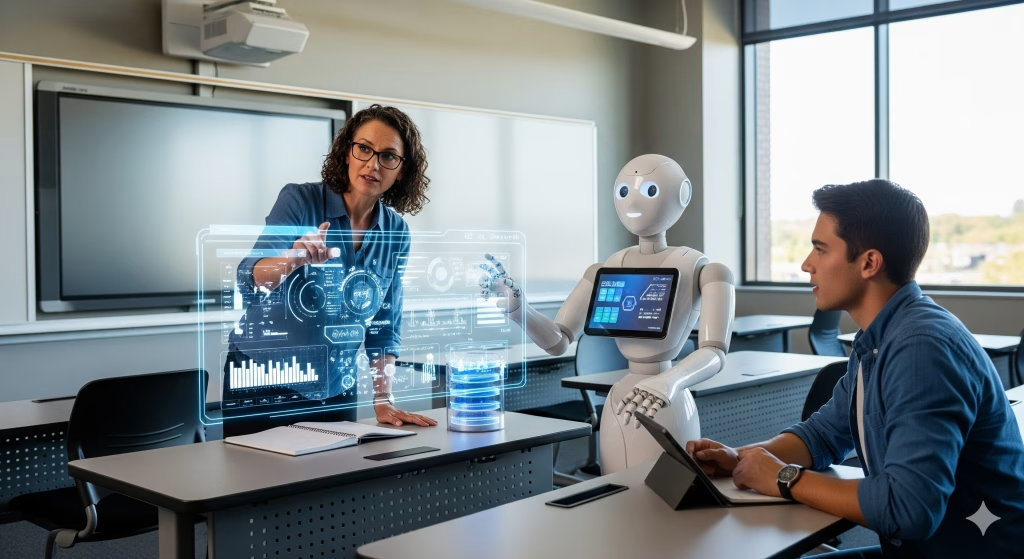
Engagement is another critical dimension where AI shows promise. Wemaxa’s adaptive quizzes challenge learners at the right level, keeping motivation high without overwhelming students. Virtual assistants send reminders, provide flashcards, and encourage practice throughout the day. For immersive subjects, Wemaxa generates AR and VR experiences such as dissecting a digital cell, touring ancient cities, or simulating business negotiations. This approach echoes broader trends in experiential learning championed by EDUCAUSE, which identifies immersive technologies as key to future-ready education. The challenge is ensuring that play-based engagement complements rigorous study rather than trivializing it. AI should enrich learning, not reduce it to entertainment alone.
Beyond formal education, AI-driven upskilling and corporate training represent one of the fastest growing sectors. In dynamic workplaces, employees require continuous learning that adapts to shifting technologies and regulations. Wemaxa delivers microlearning bursts—short, digestible training clips or case summaries that fit into professionals’ busy schedules. Our systems also track compliance deadlines and certification renewals, issuing automated alerts so teams remain audit-ready. Industry observers at World Bank Education emphasize that reskilling and upskilling are essential for economic resilience, and AI provides the infrastructure to scale these initiatives efficiently. By integrating personalized career paths, Wemaxa empowers organizations to align employee development with strategic goals while minimizing downtime.

